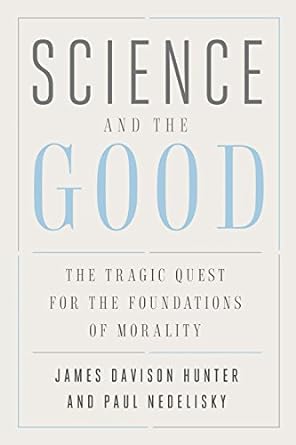
Inspired by a WSJ review, I put this on my "Things to Check Out" list. (That review is from January 2019, which should give you some indication of the slow churn of my TtCO list. Fortunately the topic is timeless.)
As you can tell from the book's subtitle, the authors believe that the effort to use scientific insights and objective facts to illuminate and discover a solid foundation for human morality has been, and will continue to be, an utter failure. Not for lack of trying; the book describes efforts going back centuries by very smart people: Grotius, Mill, Herbie Spencer, Hume, and many more.
Speaking of Hume, there have been attempts to refute or evade his classic "Is–ought problem", essentially the linguistic observation that you can't proceed from statements about what reality "is" to deduce what people "ought" to do.
But people try. The authors note, usefully, different "levels" of possible scientific explication. The gold standard is "Level One": science settling longstanding moral questions unambiguously. Somewhat weaker is "Level Two": science providing solid evidence of some outstanding moral claim or theory. Finally, there's "Level Three": science indicating the origins of some aspect of our moral sense in the raw facts of evolution, neurochemistry, etc.
Scholars in the field are so far stuck on Level Three, although there are aspirations and claims otherwise. For example, the evolutionary explanation for "altruistic" behavior, where individuals self-sacrifice for the betterment of their community gene pool. Fair enough.
It would seem that, from a 100% "science" view, the "moral nihilists" have the high ground in this discussion. When you consider the fundamentals, it's all just interactions of mindless particles and fields, physics and chemistry. The authors helpfully list some concepts that (from a "disenchanted" viewpoint) are, at best, illusory: purposiveness, consciousness, the self, free will, intentionality, and (gulp) life itself.
But never say never; maybe someday "science" will suss things out.
(Obtained via the University Near Here's Interlibrary Loan wizards from Brandeis University. Thanks as always.)
![[The Blogger]](/ps/images/barred.jpg)



